 Policy & Planning
Policy & Planning
Projects Related to Policy and Planning
In order to support community climate adaptation planning and policy through research and analysis, CIRCA seeks to better understand the challenges facing the state and its communities. The Institute examines various methodologies to understand better how towns can manage diverse policy goals, funding challenges, alternative approaches to adaptation, and implementation problems in pursuit of effective climate adaptation.
Below is a brief summary description of our current Policy & Planning projects. Click the Learn More button to read the detailed project description, or use the left navigation.
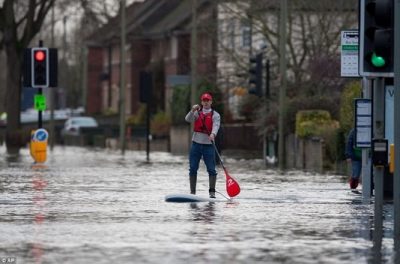
Clean Water Fund – EASE: Education and Action for Secure Energy
EASE (“Education and Action for Secure Energy”) is a focused program of education and technical assistance to help local decision makers in Connecticut plan for a secure supply of energy in extreme weather and other emergencies and to plan more broadly for local energy security and independence.

Collaborative Research: NSF R2I2: Identifying Community Need Based Adaptation and Resilience Priorities in the US Northeast
Researchers are reviewing the current state of scientific knowledge of recent trends and projections of local climate (temperature and precipitation), with a purpose to inform planning and adaptation by the state, municipalities and local governments, commercial enterprises and NGOs in Connecticut.
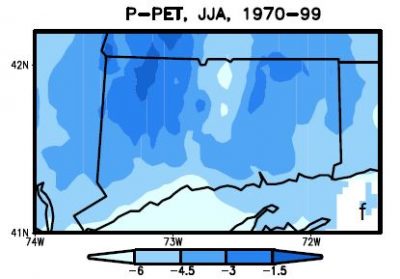
Connecticut Physical Climate Science Assessment Report
Researchers are reviewing the current state of scientific knowledge of recent trends and projections of local climate (temperature and precipitation), with a purpose to inform planning and adaptation by the state, municipalities and local governments, commercial enterprises and NGOs in Connecticut.

CRCOG – Capitol Region Natural Hazards Mitigation Plan Update
The Capitol Region Council of Governments (CRCOG) was awarded Pre-Disaster Mitigation grant funding from FEMA to update a multi-jurisdictional natural hazard mitigation plan by mid-2019. CIRCA’s Matching Funds award is being used to support the plan update.
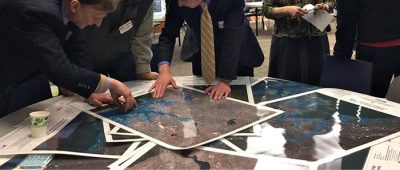
Developing Location-Based Communication and Public Engagement Strategies to Build Resilient Coastal Communities
To help reduce the challenges of climate change resilience, this project focuses on providing the tools that could help build socioeconomic resilience and facilitate community support for the planned mitigation projects to benefit the coastal residents and stakeholders in parts of Fairfield and Bridgeport.
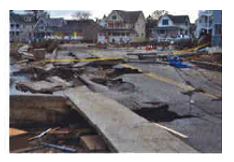
East Lyme – Coastal Resilience, Climate Adaptation, and Sustainability Project
The Town of East Lyme is enhancing community sustainability and resilience to the impacts of climate change, sea level rise, and extreme weather by developing specific policies and recommendations for inclusion in the town’s Plan of Conservation and Development. This project will create a new Flood Ordinance, establish a Flood Commission, and revise local land use policies and regulations.
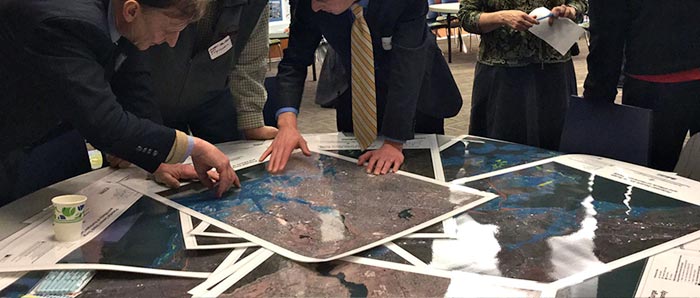
Financing Resilience in Connecticut: Current Programs, National Models, & New Opportunities
The Financing Resilience in Connecticut: Current Programs, National Models, and New Opportunities literature review and fact sheet provide information on existing resilience financing programs in Connecticut and model programs that can be applied in the State to educate municipalities, regulators, policymakers, and legislators on financing options.
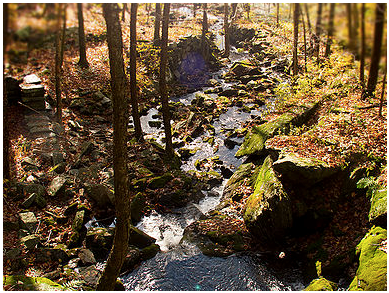
Kent Land Trust – Creation of a Strategic Workplan to Identify Parcels Enhancing Climate Resilience
The Kent Land Trust was established in 1989 to preserve natural resources in Kent and surrounding areas through land protection, stewardship, public outreach, education, and research. The primary goal of their CIRCA Matching Fund project was to develop a more science-based climate-focused land acquisition and land management strategy. The new model strikes a balance between cultural, historic, and aesthetic considerations and natural resource criteria linked to climate resilience.
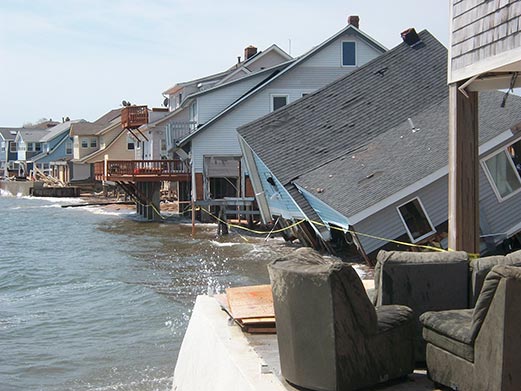
Municipal Resilience Planning Assistance for Sea Level Rise, Coastal Flooding, Wastewater Treatment Infrastructure, & Policy
The Municipal Resilience Planning Assistance for Sea Level Rise, Coastal Flooding, Wastewater Treatment Infrastructure, and Policy project provides information for wastewater system vulnerability assessments, combined river and coastal flooding for pilot sites, and policy options for priority resilience projects for towns in the Sandy-impacted counties.

Natural Resources Conservation Academy: Fostering Young Scientists in Connecticut Communities
The Natural Resources Conservation Academy’s mission is to provide transformative and authentic learning opportunities to diverse groups of high school students; stimulating critical thinking, creativity, decision-making, and appreciation of science application and nature while contributing to local environmental solutions. The NRCA directly educates high school students from throughout the state each year on climate change effects in Connecticut as well as solutions to climate change issues. All NRCA student conservation projects are conducted in both coastal and inland communities and a majority of projects address adaptation or mitigation solutions to climate change. Student conservation projects also often include an educational component, in which the student’s community will learn about the climate change issue that the student’s project is addressing and possible solutions. NRCA will advance the development of resilience and sustainability of coastal and inland communities that are vulnerable to the impacts of climate change.
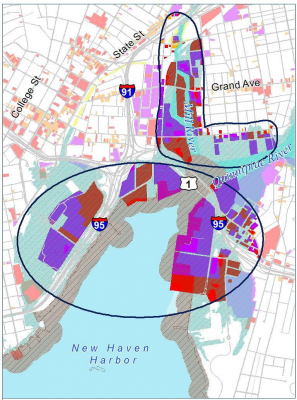
New London – Bank Street – South Water Street Project
This project is located between Bank Street and South Water Street in New London, Connecticut. It is a community-based resiliency plan focused on sea level rise. Situated on the Thames River and Long Island Sound, the city of New London has been historically vulnerable to flooding, and sea level rise projections depict even worse scenarios. This project works with the city’s Mayor’s Office and the Business Owners Association to develop a science-based design to mitigate negative impacts of sea level rise while spurring economic growth along South Water Street.

New Haven Industrial Toolbox
Flooding events can cause closures in New Haven’s commercial downtown area. In response, City officials organized the Program for Public Information in 2014 and formed a committee that was charged with making recommendations to help address flooding issues. One recommendation of the committee was to create and implement a New Haven Commercial Industrial Toolbox (CIT) to enhance resilience of the city’s commercial infrastructure by creating a manual to assist commercial property owners before flooding events occur.
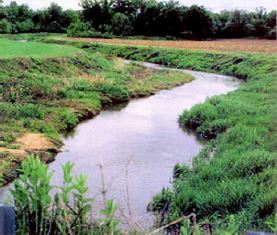
NHCOG – Enhancing Rural Resiliency: A Vision and Toolkit for Adaptation in the Northwest Hills
As a region of 21-towns, the Northwest Hills will experience a variety of climate changes including changes to precipitation rates, increased high heat and high-ozone days, and extreme weather events. NHCOG received a CIRCA grant award for its project, “Enhancing Rural Resiliency: A Vision and Toolkit for Adaptation in the Northwest Hills.” NHCOG and regional partners will use CIRCA’s support to craft a vision for A Resilient Northwest Hills and produce a web-hosted climate change adaptation toolkit for municipalities.
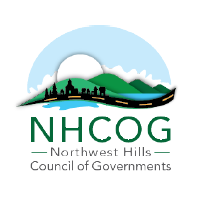
NHCOG – A Vision and Toolkit for Adaptation in the Northwest Hills
The Northwest Hills Council of Governments (NHCOG) received an award for its project, “Enhancing Rural Resiliency: A Vision and Toolkit for Adaptation in the Northwest Hills.” NHCOG and regional partners will use CIRCA’s support to craft a vision of A Resilient Northwest Hills and produce a web-hosted climate change adaptation toolkit for municipalities. As a region of 21-towns, the Northwest Hills will experience a variety of climate changes including changes to precipitation rates, shifts in seasons, increased high heat and high-ozone days, and extreme weather events. The NHCOG’s Municipal Resilience Grant project is consistent with their 2017 regional Plan of Conservation and Development, which specifically identifies climate change-related policies and specifically lists preparing, “a climate change adaptation plan including a web-based toolkit” as a strategy to help achieve the goal. While this project achieves several regional objectives, it will also be highly transferable to other towns in Connecticut.

Northwest Conservation District – Building Municipal Resilience Using Low Impact Development Design
Northwest Conservation District (NCD) is working in partnership with CIRCA and the Northwest Hills COG to develop a model Low Impact Development (LID) Design Manual.

Public Support for Adaptation to Sea Level Rise
The Public Support for Adaptation to Sea Level Rise project will survey Connecticut coastal residents to examine their preferences and values with respect to various measures to preserve coastal areas and resources in the face of sea level rise.

Real Estate Values, Tax Revenues, and Climate Change-Induced Retreat from Flood Zones
What is the cost of preserving, maintaining, or restoring coast-front (vulnerable) properties? This proposal outlines an approach to ascertain the value of oceanfront status for homes located near the coast.

Resilient Coastal Communities Under Wind & Flood Hazards
The Resilient Coastal Communities under Wind and Flood Hazards project will evaluate and compare trade-offs in residential home building designs to reduce risk of wind and flood damage in order to reduce coastal community vulnerabilities. The towns of Fairfield and Milford are participating in the study.
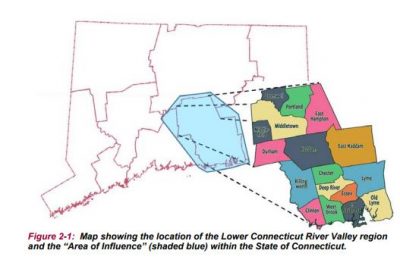
RiverCOG – Regional Long Term Recovery-Land Use Resiliency Plan
The RiverCOG developed a Regional Long Term Recovery and Land Use Mitigation Plan for its 17 towns based on real-time data and forecasts, mapping, and best management engineering practices for infrastructure (transportation, water, wastewater, utilities) as they relate to resilience in land use policies and climate adaptation. The Plan creates a template for towns to incorporate land use and infrastructure policies that will improve resiliency from natural hazard events and a strategy for long term recovery efforts.
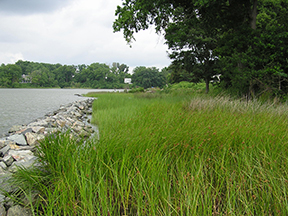
SAFR Connecticut Connections Vulnerability Assessment & Resilience Concept – National Disaster Resilience Competition (NDRC)
The SAFR Connecticut Connections Vulnerability Assessment and Resilience Concept – National Disaster Resilience Competition (NDRC) developed a climate change and extreme weather vulnerability assessment for the coasts of New Haven and Fairfield counties and a resilience concept for using the natural high ridgelines of Connecticut to connect low-lying coastal communities to resilient transit-oriented development along Metro North.
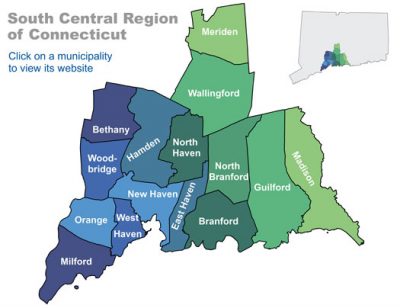
SCRCOG- Climate Adaptation and Resiliency Planning for Protection of Public Drinking Water
UConn researchers are working with the South Central Regional Council of Governments (SCRCOG) and the South Central Connecticut Regional Water Authority (RWA) to integrate climate change information into water planning processes for the region. With changing precipitation patterns, sea level rise, and drought anticipated due to climate change, water resource managers will benefit from integration of climate data into planning.
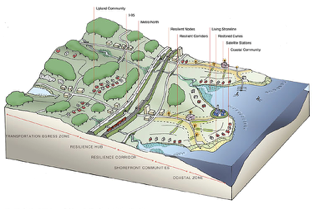
SCRCOG – Design and Technical Guide for Implementing Innovative Municipal Scale Coastal Resilience in Southern Connecticut
Coastal adaptation and resilience planning at the municipal scale faces multiple challenges including concerns with the tax base, lack of decision support tools, and gaps in valuing urban ecosystem services. A project team consisting of Yale researchers, the South Central Regional Council of Governance (SCRCOG) staff, and municipal officials seek to overcome challenges that practitioners, planners, and policymaker’s encounter by using coastal adaptation strategies applied to projects in Old Field Creek in West Haven and Cosey Beach in East Haven.
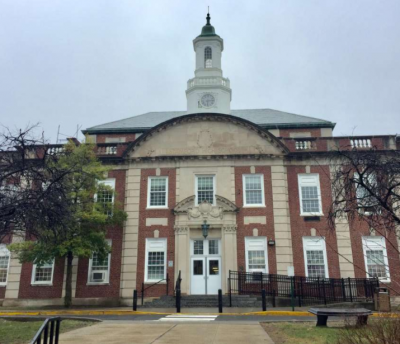
Stamford – Resilience Opportunity Assessment
The City of Stamford’s “Resilience Opportunity Assessment” is a pilot project reviewing potential vulnerability to climate change hazards at Stamford’s Government Center and High School. Government Center is where the majority of City operations are housed and the school is one of several locations serving as a public emergency shelter during blackouts and storms. This pilot assessment not only provides an opportunity to advance resiliency in specific municipal buildings, but is an opportunity to improve how the entire City functions and recovers from possible disaster.
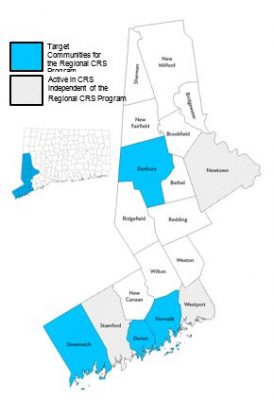
WestCOG – Regional CRS Program
Western Connecticut is extremely vulnerable to natural hazards. Many of its most critical assets including public safety, sanitation facilities, transportation corridors, employment centers, and affordable housing are located on or near the coast or the region’s many inland waterways. Using a CIRCA grant, WCOG is taking steps to create a regional CRS program and specifically assist four municipalities as they take on mitigation efforts to reduce the impacts of coastal and riverine flooding. WCOG is helping to provide cost savings by performing CRS activities and CRS municipal coordination at a regional scale.